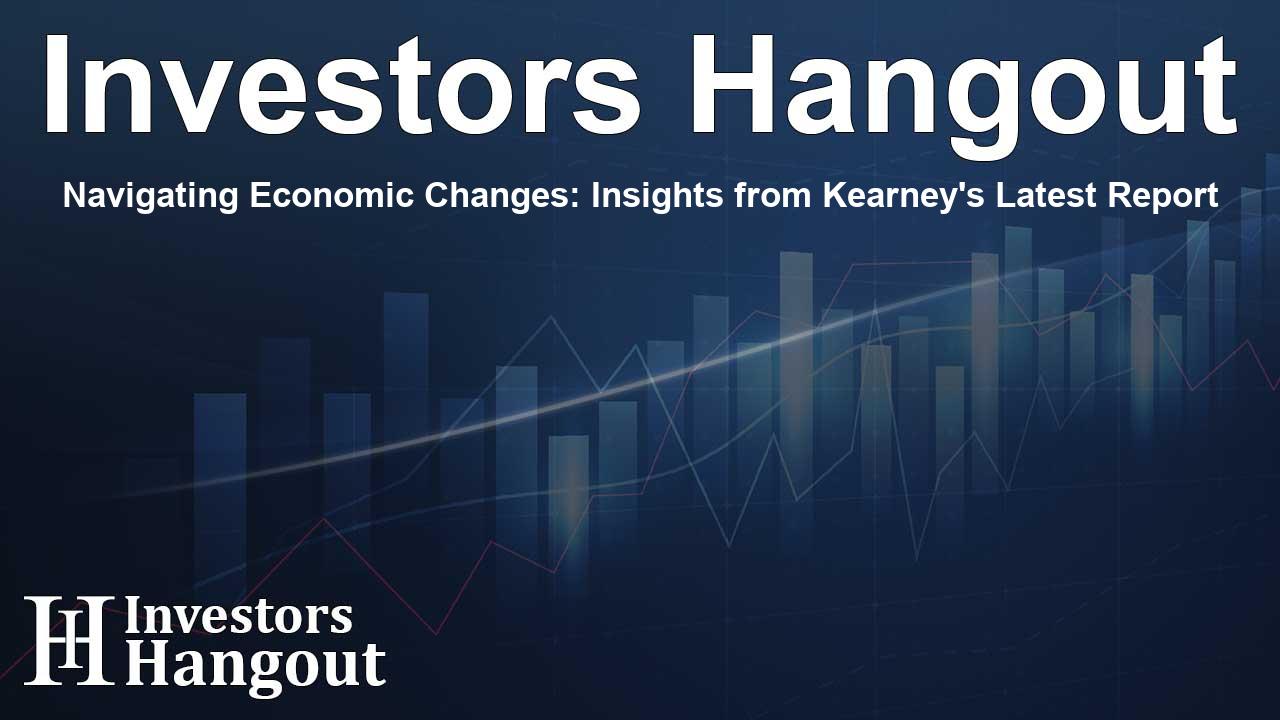Navigating Economic Changes: Insights from Kearney's Latest Report

Kearney's Caution on Global Economic Landscape
Kearney's Global Business Policy Council has issued a notable report regarding the future of the global economy, titled Global Economic Outlook 2025–2027: 2H 2025, which highlights the ongoing and significant shifts in the economic framework. The report discusses an era defined by uncertainty and variability, indicating that the challenges we face are not just temporary issues but rather a new norm affecting global growth.
Key Findings from the Outlook
The analysis presents several critical observations that underscore the challenges ahead. The rising volatility and fragmentation in the global economy are expected to continue, shaped by various factors such as economic policy uncertainty, persistent inflation, geopolitical tensions, and a growing trend towards protectionism. Each of these elements introduces significant downside pressure on overall economic health.
Among various regions, Asia and Australasia have emerged as the fastest-growing areas globally, with an average projected growth rate of 3.7% leading up to 2027. This is notably spurred by India's rapid growth, contributing significantly to this region's performance. Following closely, the Middle East and Africa are also anticipated to experience robust growth rates of around 3.5%, mainly due to strategic investments and initiatives aimed at diversification.
The Role of Technology and AI Investment
A significant factor influencing the economic atmosphere will be the accelerating adoption of artificial intelligence (AI). Kearney forecasts that global investments in AI could reach a staggering $375 billion in 2025, with projections hinting at the potential to climb even higher to $500 billion by the following year. While this surge in AI investment holds promise for productivity enhancements, it also poses risks of deepening inequality, potentially skewing benefits toward leading firms globally.
Erik Peterson, a partner and managing director at Kearney, emphasizes that companies will need to adapt to this new landscape where the ability to manage geopolitical risks and enhance resilience becomes just as crucial as innovation and operational efficiency. This perspective aligns with the growing recognition that businesses must evolve and respond proactively to these changes.
Strategies for Businesses Facing New Challenges
Terry Toland, principal at Kearney's Global Business Policy Council, encourages firms to embrace opportunities that arise from these industry disruptions. He notes that those willing to rethink their business models and prioritize resilience over sheer efficiency are likely to thrive. The sentiment is clear: companies that invest in their workforce, understand customer values, and engage with their communities will be at the forefront of defining the future economic landscape.
Particularly interesting is the notion that while regions such as the Americas and Europe have more subdued growth forecasts, uncertainty in economic performance also opens up various avenues for innovation and adaptation. The Americas are projected to experience growth of only 2.1%, while Europe lags further behind at 1.3%.
About Kearney
Kearney is a prestigious management consulting firm, established in 1926, recognized globally for its insightful contributions and partnerships with three-quarters of the Fortune Global 500. The company operates in over 40 countries, driven by a commitment to impact and innovative solutions that empower organizations to overcome their most pressing challenges. Visitors interested in learning more about Kearney can explore their services and insights by checking their official website.
Frequently Asked Questions
What is the main focus of Kearney's Global Economic Outlook?
The report analyzes the structural volatility and fragmentation in the global economy, outlining key challenges and growth opportunities.
Which regions are expected to grow fastest?
Asia and Australasia are projected to be the world's fastest-growing regions, thanks to economies like India leading the charge.
How does AI impact the economic outlook?
AI is expected to significantly increase productivity while also potentially contributing to economic inequality among firms.
What strategies are recommended for businesses?
Businesses should focus on resilience, rethinking traditional models in light of geopolitical risks and community engagement.
What role does Kearney play in this landscape?
Kearney serves as a management consulting partner, helping organizations navigate complex economic challenges with innovative solutions.
About The Author
Contact Evelyn Baker privately here. Or send an email with ATTN: Evelyn Baker as the subject to contact@investorshangout.com.
About Investors Hangout
Investors Hangout is a leading online stock forum for financial discussion and learning, offering a wide range of free tools and resources. It draws in traders of all levels, who exchange market knowledge, investigate trading tactics, and keep an eye on industry developments in real time. Featuring financial articles, stock message boards, quotes, charts, company profiles, and live news updates. Through cooperative learning and a wealth of informational resources, it helps users from novices creating their first portfolios to experts honing their techniques. Join Investors Hangout today: https://investorshangout.com/
The content of this article is based on factual, publicly available information and does not represent legal, financial, or investment advice. Investors Hangout does not offer financial advice, and the author is not a licensed financial advisor. Consult a qualified advisor before making any financial or investment decisions based on this article. This article should not be considered advice to purchase, sell, or hold any securities or other investments. If any of the material provided here is inaccurate, please contact us for corrections.
